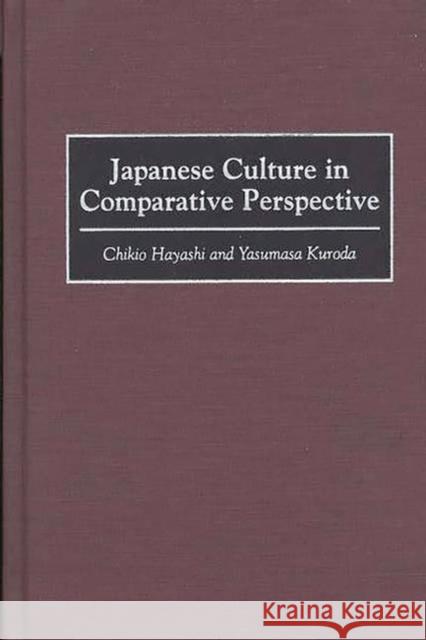Japanese Culture in Comparative Perspective » książka
Japanese Culture in Comparative Perspective
ISBN-13: 9780275958619 / Angielski / Twarda / 1997 / 240 str.
Japanese culture is inscrutable--but then, so is American culture seen from the viewpoint of the Japanese. As Hayashi and Kuroda make clear, the problem is one of perspective. Neither is really an enigma if the viewer can free him- or herself from the mother culture and look at the other culture from within its own context. Along the way, the authors answer many questions about Japan from the never-ending nature of its trade disputes to the reasons for the misconceptions of many Western writers.
The authors challenge those who think every culture perceives, thinks, and expresses alike. They also challenge those who believe that Japanese culture has changed significantly in recent years. Hayashi and Kuroda look at ancient poems and 7th-century documents as well as the writings of Japan's Nobel laureate, Oe, to show that the essence of Japanese culture remains unchanged.
By examining the use of language as well as analyzing modern statistical data, Hayashi and Kuroda show how the Japanese concept of self is indistinct and how the Japanese live in a mental world of multiple truths. Along the way the authors provide new interpretations and insights that are invaluable to all students of Japan, from policy makers to poets and painters.











